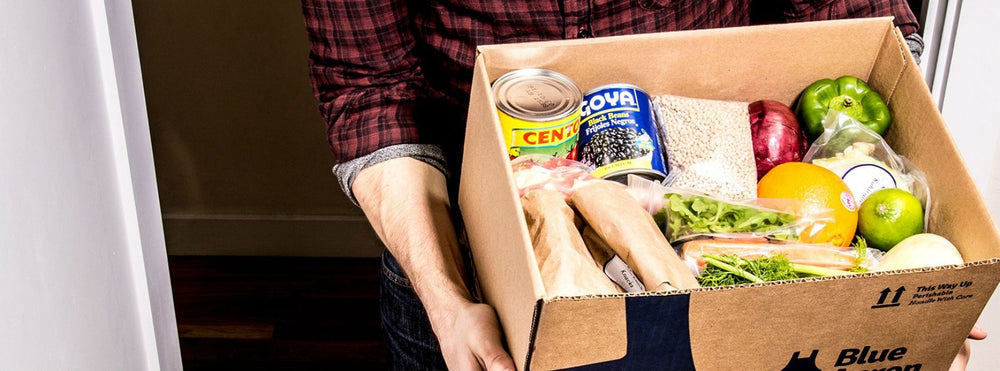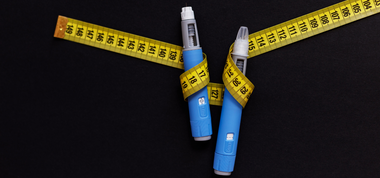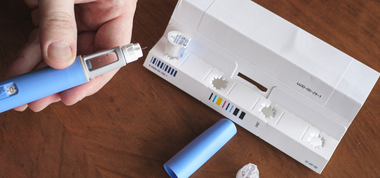Meal Delivery Kits: The Doctor's Perspective

Even if you haven’t sampled a meal delivery kit yet, chances are you have an offer or two -- or a hundred -- from Sun Basket, Blue Apron, or HelloFresh in your inbox right now. A recent Nielsen survey shows 23% of American households were considering purchasing a meal kit within the next six months.
Can these meal kits be part of a heart-healthy diet?
The answer is possibly...if you do some homework first. Here are some tips to get you started:
What to watch out for:
The good news is that it’s easy to find nutrition information for most meal kits. The bad news is that the information can be disappointing. Specifically, check out:
- Sodium. This is the biggest offender to a heart-healthy diet in most meal kits. This chicken recipe from Blue Apron, which we picked randomly, contains 1,060 milligrams of sodium -- that’s two-thirds of what we recommend per day, and way more than you’d put in a meal you make yourself. Gnocchi from the Purple Carrot deliver 650 milligrams. Creamy feta and cucumber flatbreads from Sun Basket contain 610.
- Fiber. Americans, on average, consume half the fiber they need for optimal health and meal kits don’t necessarily solve this problem. Here’s a good rule of thumb: if a food delivers at least 1 to 2 grams of fiber for every 100 calories, it’s delivering adequate amounts of fiber.
- Fat and calories. Just because you’re cooking it doesn’t mean it’s low fat or low cal. This “Hall of Fame” pasta casserole dish from Hello Fresh delivers a whopping 950 calories per serving and 44 grams of fat, of which more than one third is saturated. Plus, there’s only 6 grams of fiber per serving, instead of the 9.5 to 19 grams you should be getting/expecting based on calorie load. Bottom line: you have to be just as diligent in looking at nutrition panels on these kits as you would be when picking up a boxed item off a grocery store shelf.
What to look for:
Sign up with a service that offers plant-based or Mediterranean options, and/or note how many pescatarian or vegetarian choices the service typically offers in a week. Most offer some flexibility in choosing recipes, so look for recipes tagged Mediterranean or vegetarian. Better yet, sign up for a service with a premise of plant-based foods, such as Purple Carrot. Favoring more plant based recipes from the get go will help ensure lower calorie, higher fiber and higher antioxidant intake while still getting plenty of protein.
One more tip:
Add only half of the salt called for in the recipe. You can always add a little more at the table - but chances are high you won’t have to.
Is it really for you?
There are many considerations when opting for these meals that go beyond whether or not they are healthy. An article I recently ran across pointed out some of the concerns:
- You still have to cook. For me that’s a positive, but many people go this route to save time. Despite everything coming nicely organized in a box, you will still be spending around 45 minutes in the kitchen preparing your meal.
- You still have to pay for it. The average meal kit costs somewhere between $10 and $12 per serving – which is about as much as you’d pay for takeout. Some kit services will set you back as much as $80 per day (!). So if saving money is the idea, you’re much better off going to the grocery store. (Next week, I’ll show you how eating well doesn’t have to be expensive).
- You won’t have any leftovers. That may be a good thing if you find yourself regularly throwing out food – but if you’re counting on leftovers for lunch next day, you’re likely out of luck.
- You will have lots of trash. Most services leave a lot of packaging in their wake:

- It may not even taste that great. The folks at Wirecutter found that, on average, these kits rated a 7 out of 10 for taste. But if you’re going to be paying for all the ingredients and putting in the effort to actually cook the food, seems like a 9 out of 10 should be the expectation.
Bottom line:
If a meal kit helps you avoid fast food, it’s almost assuredly a better bet. If it helps you avoid overdoing it on takeout, it might be a better choice. If it replaces made-from-scratch meals, skip it.

Tested & Proven Results.
- Cardiologist formulated
- Supported by over 500 publications
- Clinically-proven, in a double-blind randomized trial with Mayo Clinic and The University of Manitoba
80% of participants lowered their cholesterol in just 30 days. With just two servings per day, Step One Foods offers a proven-effective way to naturally lower LDL (bad) cholesterol.
Get heart health tips and articles like this, delivered right to your email.
New articles every week.
You may also like...

What You Need to Know About GLP-1 Medications: Part 3

What You Need to Know About GLP-1 Medications: Part 2

You don’t need to avoid foods with cholesterol…except for these


